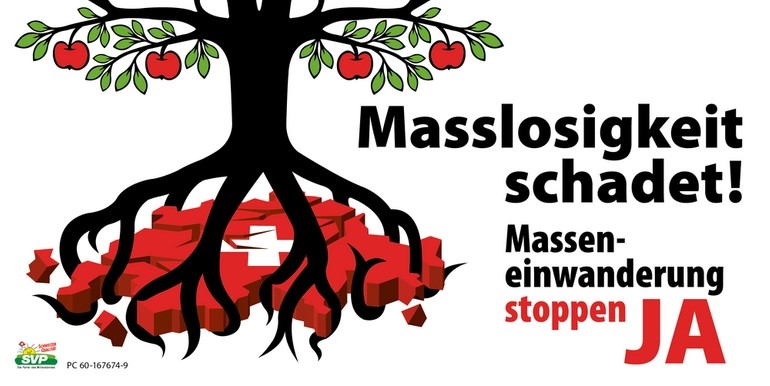Juliette Wipf

Over the last decade, nationalist and anti-immigration parties have gained voters throughout Europe (Front National, Golden Dawn, Alternative für Deutschland, Lega Nord, and many more). Brexit is not the first case where citizens have decided in favor of legislation that jeopardizes international academic cooperation. In Switzerland, scientific collaborations are at stake after the passage of an initiative launched by the national-conservative and right-wing populist “Swiss People’s Party.” The initiative, entitled “Against Mass Immigration,” threatens the free-movement policy of the Schengen area (a group of EU and non-EU European countries with an agreement of free movement). In response, the European Union has expelled Switzerland from mutual science and exchange programs. To date, Swiss scientists are still in fear of the consequences resulting from the implementation of this initiative.
Free movement inside the Schengen area
Switzerland, Iceland, Liechtenstein and Norway are not part of the EU, but have signed the Schengen Agreement. Together with the EU-member states, those countries therefore form the Schengen area. Inside this area, border controls have been abolished and the principle of free movement is pursued, which immensely aids scientific exchange in Central Europe.
Horizon 2020
As the biggest EU Research and Innovation program ever created, Horizon 2020 made nearly 90 billion dollars of funding available to researchers between 2014 and 2020. The aim of the project is to further develop the European Research Area and to “break down barriers to create a genuine single market for knowledge, research and innovation.” Non-EU countries inside the Schengen area take part in EU projects such as Horizon 2020, and Switzerland plans to contribute 4 billion dollars to the project.
The “Against Mass Immigration” initiative
Switzerland’s semi-direct democracy is unique and practices direct democracy in parallel with the representative democracy voting system. A vote can be organized by the people to oppose any law newly accepted by the Federal Assembly, as well as to modify the existing constitution with a so-called initiative. In 2011, the “Swiss People’s Party” launched the “Against Mass Immigration” initiative, aiming to limit immigration through quotas. Even though no number was specified for such a quota, the idea stands in stark contrast to the free-movement policy of the Schengen area. The party’s arguments fueled the fear of unemployment, the financial crises and the refugee flow. These arguments are similarly exploited by many other nationalist parties in Europe or other people who would like to secure their countries by building walls. Unfortunately, Swiss citizens approved the initiative with a narrow majority of 50.3% in 2014.
Immediate effects of the initiative
In response to the vote in favor of this initiative, the EU excluded Switzerland from Horizon 2020 and the EU student exchange program “Erasmus.” Luckily, an interim solution was defined and international projects could be continued. The decision for Erasmus, on the other hand, was final.
The current state
According to the law of the Swiss democracy, the “Against Mass Immigration” initiative must be incorporated in the Swiss constitution by 2017. How this new law will be implemented is uncertain. At the same time, Switzerland recently signed the “Protocol on the Extension to Croatia of the Free Movement of Persons Agreement between the EU and Switzerland.” This protocol secures free movement with Croatia, the newest EU-member state, and the Schengen country Switzerland. The two legislative decisions are as contradictory as can be, and even inside the Swiss Federal Council, opinions are divided on how the two can be in effect at the same time. The EU has clearly defined their expectations: if Switzerland does not get the Croatia Protocol ratified by 2017, its participation in Horizon 2020 will be terminated.
In the meantime, Swiss researchers and students are anxious and angry. So far, they have been the only ones affected by the scare tactics of the “Swiss People’s Party.” To quote Swiss science lobbyist Andrea Degen; “In science and development, real innovations can only come about when international knowledge is combined. You can swing around your cowbell in a mirror all day long—it will still happen! You can’t stop it!”
